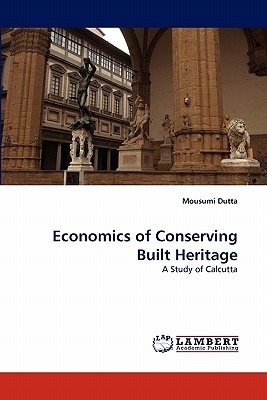
- We will send in 10–14 business days.
- Author: Mousumi Dutta
- Publisher: LAP Lambert Academic Publishing
- ISBN-10: 3838388925
- ISBN-13: 9783838388922
- Format: 15.2 x 22.9 x 0.9 cm, minkšti viršeliai
- Language: English
- SAVE -10% with code: EXTRA
Reviews
Description
Preservation of built heritage is emerging as a major issue in the urban planning process of developing countries. This book criticizes the tendency of policy makers to sacrifice cultural remnants of the past for future benefits. It argues that policy makers must seek economically viable solutions to handle the problems of conserving built environment. Starting from the questions of what to preserve and for whom to preserve, the book makes a convincing case for conserving built heritage on economic grounds. It argues that policy makers must introduce a transparent and systematic process of grading built heritage, and identifies multi-criteria decision-making method as an important tool for this purpose. This is followed by a discussion of how to fund conservation. Based on a contingent valuation survey, the book examines the replicability of heritage tourism policies prevalent in developed countries for countries like India. The analysis sheds new light on an area of emerging importance in developing countries, and should be of value to urban economists, urban planners, cultural economists, historians, architects and conservationists.
EXTRA 10 % discount with code: EXTRA
The promotion ends in 21d.15:28:20
The discount code is valid when purchasing from 10 €. Discounts do not stack.
- Author: Mousumi Dutta
- Publisher: LAP Lambert Academic Publishing
- ISBN-10: 3838388925
- ISBN-13: 9783838388922
- Format: 15.2 x 22.9 x 0.9 cm, minkšti viršeliai
- Language: English English
Preservation of built heritage is emerging as a major issue in the urban planning process of developing countries. This book criticizes the tendency of policy makers to sacrifice cultural remnants of the past for future benefits. It argues that policy makers must seek economically viable solutions to handle the problems of conserving built environment. Starting from the questions of what to preserve and for whom to preserve, the book makes a convincing case for conserving built heritage on economic grounds. It argues that policy makers must introduce a transparent and systematic process of grading built heritage, and identifies multi-criteria decision-making method as an important tool for this purpose. This is followed by a discussion of how to fund conservation. Based on a contingent valuation survey, the book examines the replicability of heritage tourism policies prevalent in developed countries for countries like India. The analysis sheds new light on an area of emerging importance in developing countries, and should be of value to urban economists, urban planners, cultural economists, historians, architects and conservationists.


Reviews